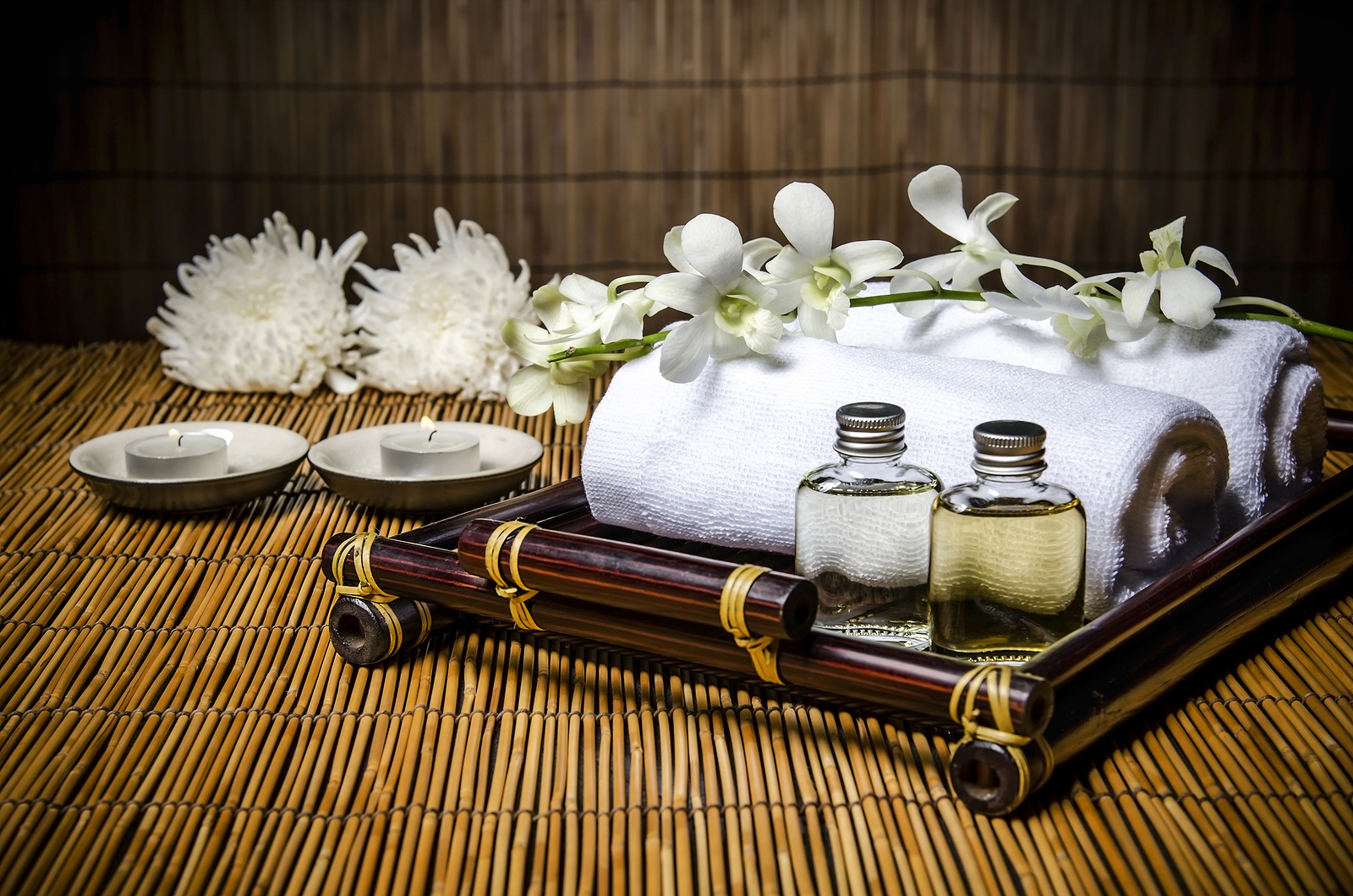How Massage Therapy Can Help Your Immune System – Improve Circulation – Relieves Stress – Boosts Immune System – Lowers Blood Pressure
(MassageSpaSTL) Massage may initially be sought to alleviate pain, but it also has other medicinal applications. Massage has been known to decrease cortisol levels while increasing serotonin and dopamine—two neurotransmitters known for helping balance mood.
Integrating massage into your self-care routine can bring many advantages, yet finding time for it may not always be straightforward.
Massage Therapy for Improved Circulation
Routine therapeutic massage can significantly boost circulation by relieving muscle tension and encouraging blood flow to tissues. Receiving regular massages is especially essential for athletes and active individuals as it helps maintain good muscular condition, prevent injuries to musculoskeletal systems and speed recovery, enhance oxygen delivery to muscle fibers while flushing away toxins, prevent poor posture from developing due to tightened muscles and alleviate joint pain in neck and back regions, among other benefits.
Your muscles work hard during workouts, tearing microscopic fibers that require repair and replenishment with essential nutrients. Without this nourishment, they’ll become tired, weak, and more likely to be injured than ever. Massage helps improve circulation, providing nutrients and oxygen more effectively while eliminating metabolic waste products like lactic acid from your system.
Professional massage therapists employ various massage techniques, such as effleurage, kneading, and compression, that can aid circulation improvement. Some techniques use pressure on specific points on the body, while others utilize rhythmic stroking movements that help the body relax and stretch out.
Massage therapy can be beneficial in naturally lowering blood pressure without resorting to medication. Studies have demonstrated its efficacy in bringing systolic and diastolic pressure down within the normal range. Massage therapy relaxes muscles and improves circulation, thus decreasing fluid in the arteries and heart rate.
Stress-relieving massage therapy has also been shown to lower blood pressure by lowering cortisol levels, a hormone responsible for tight, weak muscles, inflammation, and increased blood pressure. Regular massage sessions also boost serotonin and dopamine, which improve mood and sense of well-being.
Make the most of your massage experience by regularly asking the therapist for feedback to ensure your comfort and relaxation. Inform them if any areas of discomfort or sensitivity arise, encouraging them to alter pressure or technique as necessary. When massaging bony prominences, it is wise not to press too heavily, as this could injure the client or cause discomfort.
Relieves Stress
Stress is a normal part of life, but excessive exposure can become problematic when experienced continually. Chronic stress can cause many symptoms, including pain, insomnia, and digestive issues; massage therapy may be able to relieve these by helping lower heart rates and blood pressure while relaxing muscles and increasing the production of feel-good hormones such as endorphins, serotonin, and dopamine—providing much-needed relief from symptoms of chronic stress.
Stressed-out bodies often experience compromised immunity systems that leave them susceptible to illness and disease. An overworked nervous system is unable to react appropriately in situations threatening it; when this occurs, the body cannot fight or flee when threatened. Massage therapy provides great benefits in this regard as it helps alleviate tension.
Massage can be effective at relieving stress because it stimulates the peripheral nervous system, which acts as a conduit between the brain and extremities. Stimulation also releases feel-good hormones into the system that can calm you and interrupt any pain signals sent directly to the brain.
Massage also activates nerve pathways connecting to muscles, bones, and organs through its rubbing action, improving the function of all connected bodies. For example, when you bump your knee or elbow, and it hurts, one instinctual response is usually to rub the area because this activates a pain response similar to that produced during massage therapy sessions.
Therefore, it is recommended that you schedule at least one massage every week if possible. Doing this can really help strengthen your immune system and relieve some of your stress, which will ultimately make you feel better overall.
Boosts Immune System
Massage therapy can be invaluable in maintaining optimal immune health. By adding antiviral, antimicrobial, or antibacterial additives to your massage oil, you can enhance its beneficial properties further. However, even the act of therapeutic touch alone stimulates key components of the immune system to stand up and defend against harmful invaders—commonly referred to as toxins—entering the body.
Maintaining a robust immune system requires eating healthily, exercising regularly, and getting plenty of restful sleep. If your sleep suffers due to poor quality or stress levels increase, your immunity could become compromised. Massage therapy has been shown to relax and improve sleep while decreasing anxiety levels, which in turn impacts immune function directly.
Massage uses soft tissue manipulation to increase circulation throughout the body, nutrient distribution, and waste removal. By nourishing all body cells, massage helps strengthen the immune system against infections and diseases.
Studies have demonstrated that getting a massage increases white blood cell count in your body, providing important defense against illness. Studies have also revealed that massage boosts NK cells and lymphocytes – crucial components of our natural defense systems that act against pathogens – which increases by receiving one.
Stress is one of the primary contributors to weakening your immune system, and chronic stress has adverse health consequences. Massage is an excellent way to alleviate this effect on the body and may even lower cortisol levels that impair immunity function.
Cedars-Sinai Medical Center conducted a study that demonstrated that those receiving 45-minute Swedish massage experienced an increase in lymphocyte count—essential for fighting infections—as well as decreased levels of inflammatory cytokines, which can cause reactions in the body and thus create inflammation. Coupled with its other advantages of pain relief, improved sleep, and decreased stress levels, massage can be invaluable in keeping yourself healthy.
Lowers Blood Pressure with Massage Therapy
If you suffer from high blood pressure (hypertension), massage therapy could be an effective natural way to lower it without the use of medication. Studies have revealed that regular massage can help soothe your sympathetic nervous system – the part responsible for raising your blood pressure during times of stress – helping keep blood pressure under control. When combined with other healthy lifestyle practices such as eating foods lower in sodium and saturated fat, exercising regularly, giving up alcohol/smoking altogether, and maintaining a healthy body weight, massage can be invaluable in keeping blood pressure under control.
One reason massage can help lower blood pressure is its ability to improve circulation. This may be facilitated through physical manipulation of soft tissue and stimulating the release of chemicals that enhance relaxation and cell health – leading to oxygen reaching its destination more effectively within your cells and waste products being expelled more swiftly.
Studies have also demonstrated the power of massage to slow your heart rate and lessen the viscosity of blood, thus helping to decrease your blood pressure and possibly augmenting the efficacy of antihypertensive medications.
People suffering from hypertension often fear having massage treatments as the blood pressure in their bodies may already be too high to be safe from being put at risk by having one. However, many forms of massage therapy can still be safe if the pressure applied is light and the masseuse knows how to adjust accordingly.
If you are concerned about your systolic and diastolic pressures, it is best to seek medical advice before making any significant lifestyle changes like massage therapy. A physician will be able to advise on which massage type, duration, frequency, and other healthy lifestyle factors will help bring down your blood pressure. It would help if you continued taking any prescribed medication as instructed and always listened to the advice given by your healthcare team.
Visit us on STL.Directory

